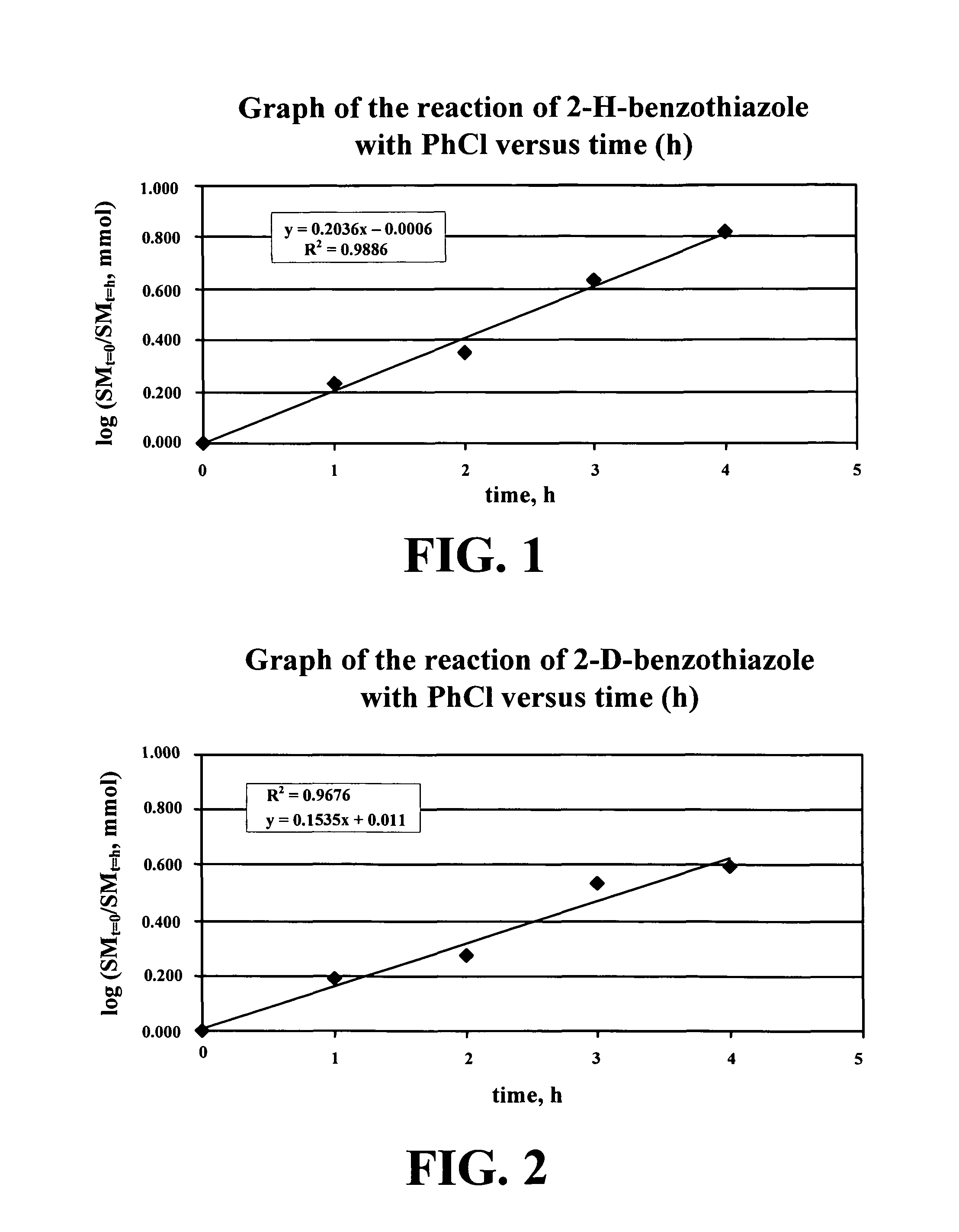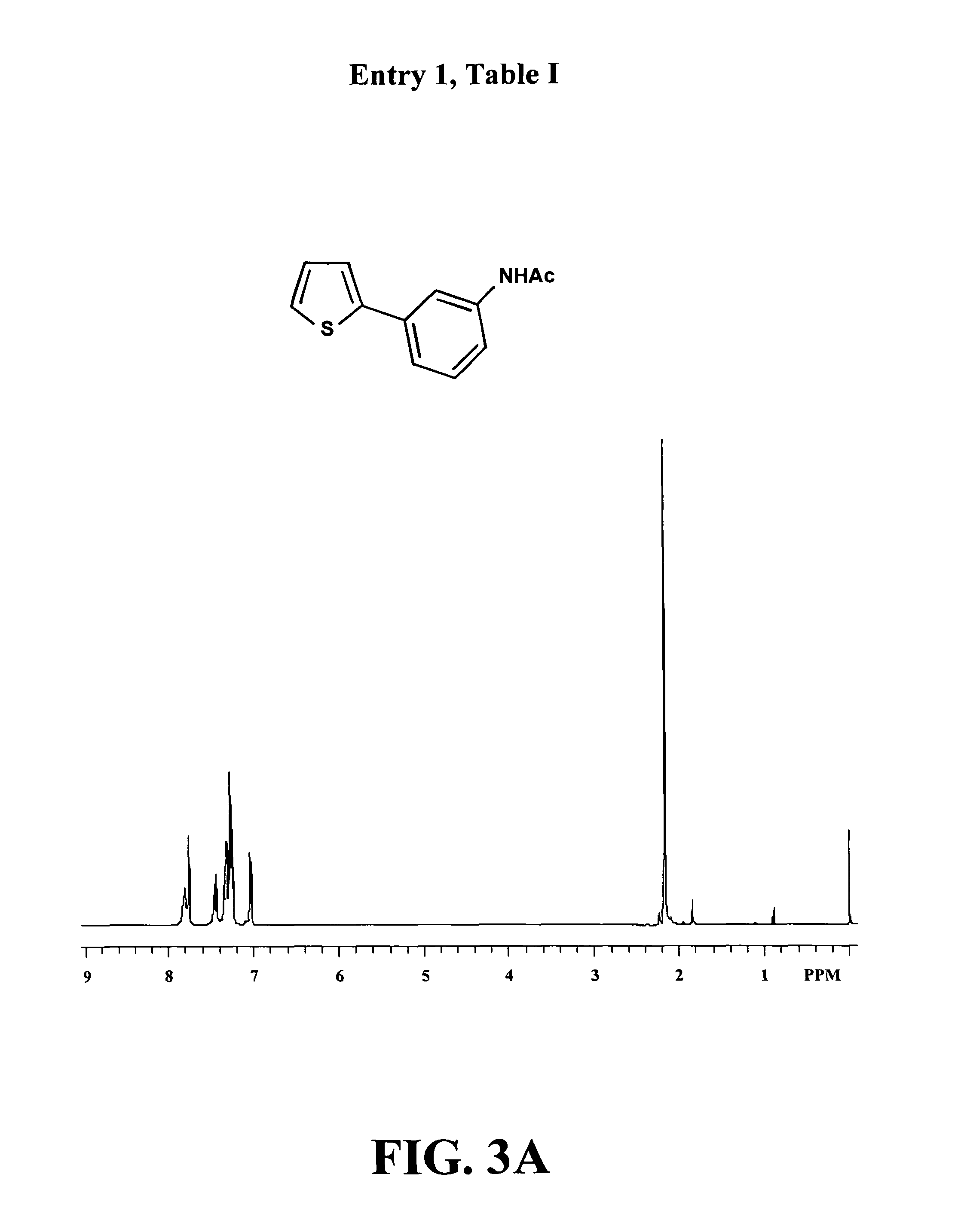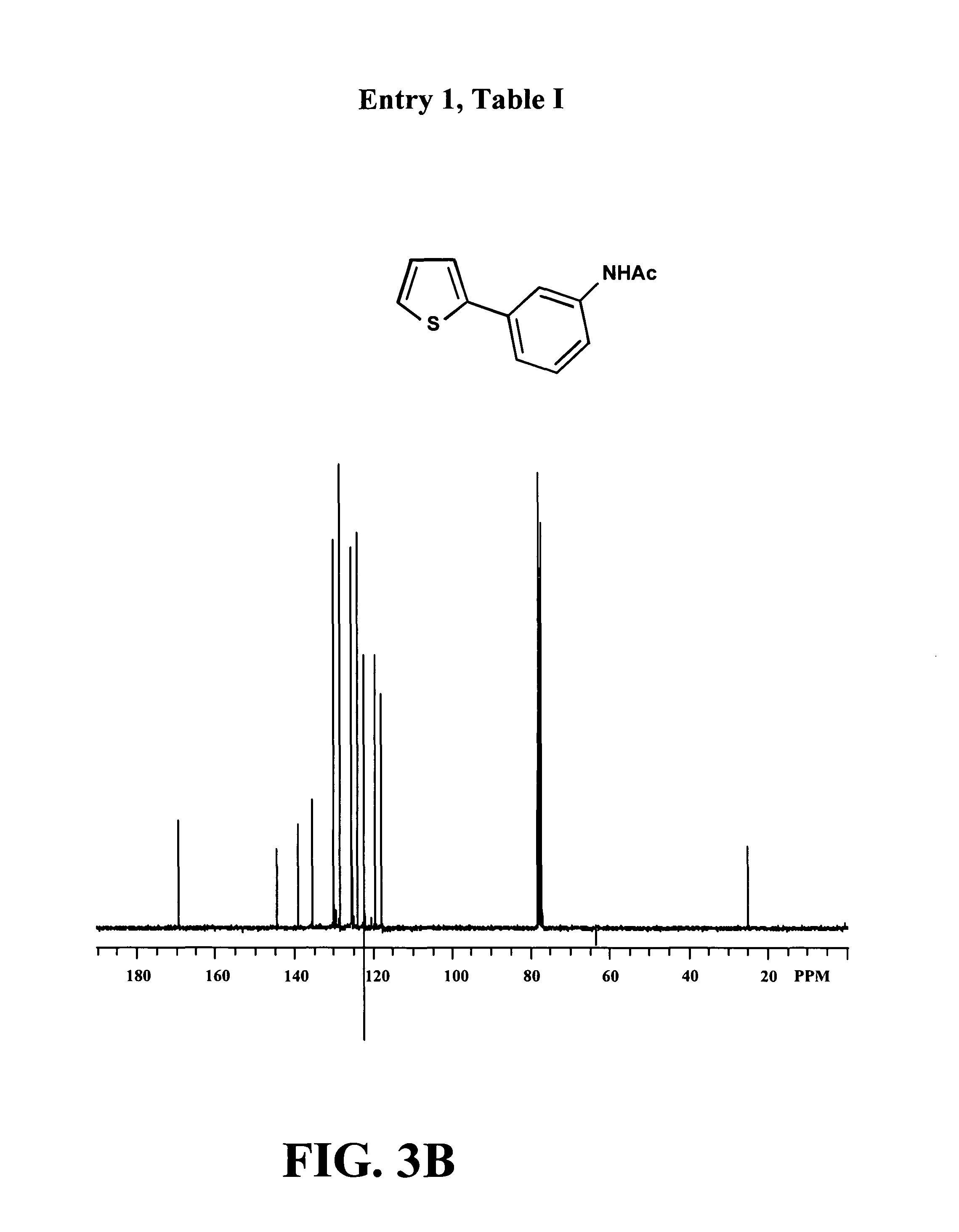Use of aryl chlorides in palladium-catalyzed C-H bond functionalization
a technology of c-h bond and aryl chloride, which is applied in the preparation of halogenated hydrocarbons, carboxylic compound preparations, organic chemistry, etc., can solve the problems of expensive or difficult preparation of functionalized starting materials, etc., and achieves cheaper and faster methods of forming, shortening many synthetic schemes, and forming cheaper and faster
- Summary
- Abstract
- Description
- Claims
- Application Information
AI Technical Summary
Benefits of technology
Problems solved by technology
Method used
Image
Examples
Embodiment Construction
[0090]The inventors have found
[0091]The present invention broadly relates to a method for the efficient formation of carbon-carbon bonds through the intermolecular arylation of electron-rich, five-membered heterocycles, benzoic acids, and phenols by aryl chlorides in the presence of a palladium catalyst. This method allows faster formation of complex molecular entities, a process that would otherwise require many more steps. This invention is particularly relevant for the organic synthesis of complex molecules such as, but not limited to, pharmacophores.
[0092]In one embodiment, the present invention includes a general procedure for the coupling of chloroarene with heterocyclic compounds according to Formula (I):
[0093]ACl+HcyCPdCat⟶Base,MS,SolAHcyC(I)
where A is are aryl group (A-Cl is an arene chloride or a chloro-arene), HcyC is a heterocyclic compound, PdCat is a palladium catalyst, Base is an inorganic base, MS is a molecular sieve and Sol is a solvent system. In certain embod...
PUM
| Property | Measurement | Unit |
|---|---|---|
| temperature | aaaaa | aaaaa |
| temperature | aaaaa | aaaaa |
| time | aaaaa | aaaaa |
Abstract
Description
Claims
Application Information
 Login to View More
Login to View More - R&D
- Intellectual Property
- Life Sciences
- Materials
- Tech Scout
- Unparalleled Data Quality
- Higher Quality Content
- 60% Fewer Hallucinations
Browse by: Latest US Patents, China's latest patents, Technical Efficacy Thesaurus, Application Domain, Technology Topic, Popular Technical Reports.
© 2025 PatSnap. All rights reserved.Legal|Privacy policy|Modern Slavery Act Transparency Statement|Sitemap|About US| Contact US: help@patsnap.com



